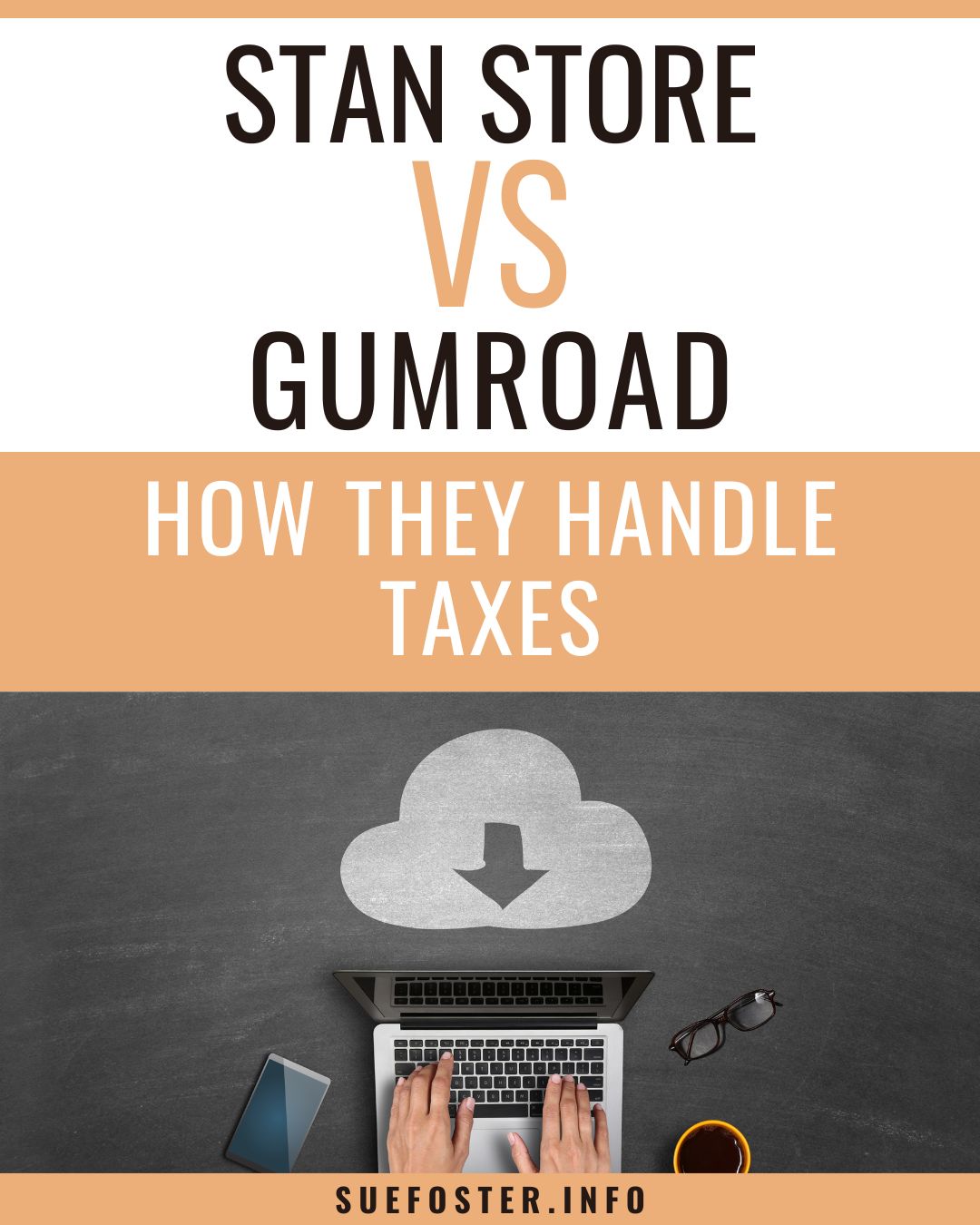If you sell digital products, templates, or courses online, two names probably come up a lot: Stan Store and Gumroad. Both are popular with creators who want to make money without juggling a complicated website setup. But when tax time rolls around, especially if you’re in the UK and filling out a self-assessment, how they handle VAT and reporting can make a big difference.
Let’s break it down simply.
How Each Platform Handles Taxes
Stan Store
Stan Store markets itself as an all-in-one creator store, good for selling digital downloads, coaching sessions, courses, and subscriptions. It’s especially popular on TikTok and Instagram because you can link it straight from your bio.
However, when it comes to tax handling, Stan Store is still catching up. As of now:
- It doesn’t automatically collect or remit VAT for you.
- You’re treated as the seller of record, meaning you are responsible for reporting and paying VAT if you meet the UK VAT threshold or sell to EU customers.
- Stan provides basic sales data, but you’ll need to keep detailed records yourself for your self-assessment and accounting software.
It’s simple for setup, but that simplicity comes with more responsibility later.
Gumroad
Gumroad’s been around for years and has a much more mature setup behind the scenes.
Here’s what it does well:
- It automatically collects and remits VAT and GST on your behalf for EU, UK, and other applicable regions.
- Gumroad acts as the seller of record, so technically they handle the VAT side of things.
- You’ll still declare your income on your self-assessment, but you won’t have to calculate or submit VAT separately.
- You can export detailed reports with each transaction, which makes record-keeping much easier.
This makes Gumroad a strong choice if you want to keep tax admin minimal.
Costs and Fees
This is another area where the two platforms differ quite a bit.
Stan Store
Stan promotes “no transaction fees,” which sounds appealing, but there’s a monthly cost to use it. Their plans start from around $29 a month (depending on the tier), so even if you don’t make any sales that month, you’re still paying for access.
That flat fee can make sense if you’re consistently selling or running a coaching business, but it’s not ideal for beginners who might have unpredictable income.
Gumroad
With Gumroad, there’s no monthly subscription. You only pay when you make a sale.
They take a percentage fee (around 10% depending on your plan), so it’s purely pay-as-you-earn. This makes it a low-risk option for creators testing ideas or starting small — you only pay when you’re actually earning.
Which One Makes Self-Assessment Easier?
If you’re based in the UK and doing your own books, Gumroad wins hands down for simplicity. You’ll only need to report what you’ve earned from Gumroad (the amount you actually receive after fees and taxes). VAT is already handled in the background.
Stan Store, on the other hand, gives you full control, but that means full responsibility. If you’re not VAT-registered, you’ll just declare your income as usual. If you are VAT-registered or sell internationally, you’ll need to manage the VAT side manually.
Ease of Use for Selling
- Stan Store: The easiest to set up, perfect for a clean link-in-bio store with quick checkout options.
- Gumroad: Slightly more setup steps, but more robust for reporting and compliance.
If you’re just starting out and not near the VAT threshold, Stan Store might be fine. But if you plan to grow or sell a lot internationally, Gumroad saves you future headaches.
Practical Tips
- Keep a spreadsheet or use software like FreeAgent to record income and platform fees.
- Download your monthly sales reports from whichever platform you use.
- If you’re under the VAT threshold, you don’t need to register, but you still need to track income accurately.
- Keep invoices, payout records, and emails. They’ll save you time when filling out your self-assessment.
Which One Works Best for You
If tax simplicity and flexibility are your top priorities, Gumroad is easier for self-assessment and fairer on costs when you’re starting out.
If you care more about branding, speed, and a TikTok-friendly setup, Stan Store feels slicker but requires more legwork, and you’ll be paying a fixed monthly fee whether or not you sell.
Both have their place in the creator toolkit. The best choice depends on whether you’d rather pay for convenience upfront or share a slice of your earnings when the money starts coming in.
Pin Me!


